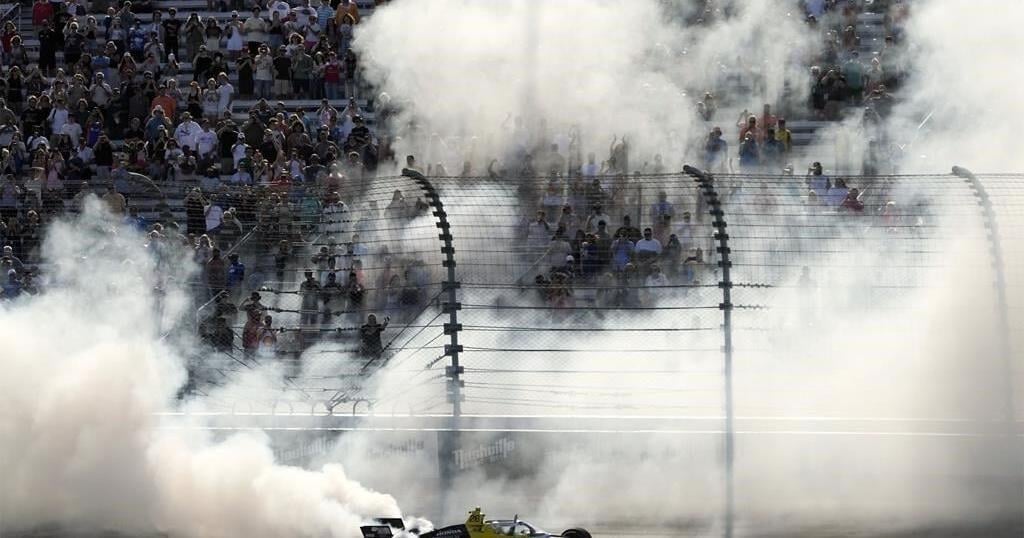IndyCar on Monday finalized a charter system for 25 entrants that, while it pales in comparison to the contentious deal reached between NASCAR and its teams over their revenue sharing model, does give 10 open wheel organizations some guarantees.
The initial agreement runs through the 2031 season and ensures the 25 chartered cars a starting spot in all IndyCar races except the Indianapolis 500. Teams will still have to qualify on speed for the Indy 500’s 33-car field, and that was one of the biggest elements of negotiations as opinions were divided among traditionalists and those seeking greater value for their teams.
Chartered entries are also the only cars eligible for the Leaders Circle program, which is a monetary bonus awarded by IndyCar to the top 22 finishers at the end of each season. That bonus money covers significant portions of some teams’ annual budgets.
“This is an important development that demonstrates an aligned and optimistic vision for the future of our sport,” said Mark Miles, president and CEO of Penske Entertainment Corp. “We’re pleased to have a system in place that provides greater value for our ownership and the entries they field.”
Charters were extended to team owners based on full time entries over the previous two seasons and capped at three per team. The cap most affected Chip Ganassi Racing, which fielded five cars this year.
But Ganassi has created an alliance with Meyer Shank Racing and Marcus Armstrong will move to MSR after two seasons with Ganassi. It is not clear what will happen to the fourth car at Ganassi, who also fielded entries for six-time champion Scott Dixon, three-time champion Alex Palou, and rookies Linus Lundqvist and Kyffin Simpson.
Lundqvist had indicated at last week’s season finale that he would be the odd man out with no plans for 2025.
Andretti Global, Arrow McLaren, Ganassi, Rahal Letterman Lanigan and Team Penske all received three charters. AJ Foyt Enterprises, Dale Coyne Racing, Ed Carpenter Racing, Juncos Hollinger Racing and MSR received two charters each.
Prema Racing, which is entering IndyCar next year with two cars, did not receive any charters. The team announced last week Callum Ilott as the first of its two drivers.
Most teams were pleased with the system, which is essentially a franchise tag that gives team owners something of value beyond cars, parts and pieces.
“It is incredibly challenging to get a large group of owners to agree on something, and certainly there was some give and take but, in the end, I believe this is a path that is beneficial for all of the owners and for IndyCar, while also maintaining the availability for open competition,” said Larry Foyt, president of A.J. Foyt Enterprises.
But the system does little to move the needle for Arrow McLaren Racing chief executive officer Zak Brown, who wasn’t sure what the team actually gained in the charter agreement.
“I have found that there’s nothing material in there that drives for us any substantial incremental value. So if the hype was this is going to be a big thing and be great for the foundation of an IndyCar team, I haven’t seen those benefits,” Brown said. “It’s not bad. I think it’s good that it’s a first step. But there’s no revenue sharing model. Indy, I don’t have a guaranteed spot.
“It really only helps, from my perspective, helps in an event if a race is oversubscribed. If we had a (crash) in qualifying … and couldn’t qualify, I’m protected to make the race. From what I can see, that’s what I’m getting.”
But rival Ganassi ranked the arrival of charters in IndyCar importance behind only the merger of the defunt CART Series with the IRL that create America’s current open-wheel series, and Roger Penske’s 2020 purchase of the series and Indianapolis Motor Speedway.
“When you look back in the modern era of IndyCar racing, you will look at a few important moments,” Ganassi said. “I truly believe the charter system will be the third.”
NASCAR earlier this month ended two years of tense negotiations on a new charter agreement with its teams. Both Michael Jordan-owned 23XI Racing and Front Row Motorsports refused to sign the new deal, and most teams said they did so reluctantly because they didn’t believe they could get anything more from NASCAR.
NASCAR’s charter agreement includes a revenue sharing model, while IndyCar’s does not. That’s because IndyCar does not have the lucrative television package that NASCAR must split between its stakeholders.
IndyCar did sign a new television deal with Fox Sports that begins next year, and team owner Ed Carpenter indicated the TV package and charter agreement paved the way for upcoming organizational announcements. Presumably, Carpenter needed the charter system finalized and the Leader’s Circle bonuses for his two cars to be able to sign his 2025 lineup.
“ECR will have announcements soon and I don’t know that they would be possible without the help of a program like this,” Carpenter said. “With this groundbreaking development, the new TV deal with FOX and the momentum that had been building, IndyCar’s future is very bright.”
___
AP auto racing:
